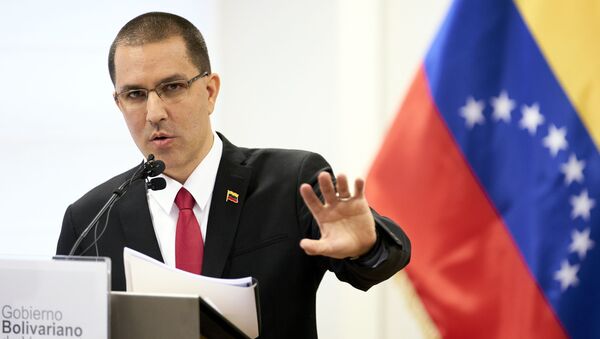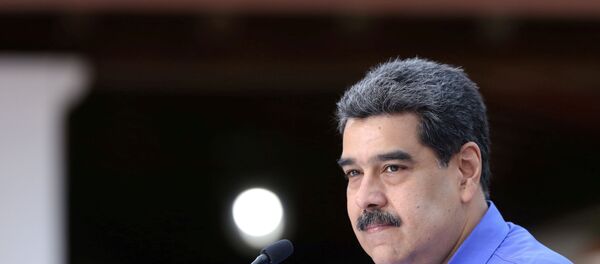Venezuelan Foreign Minister Jorge Arreaza has accused his US counterpart Mike Pompeo of crying crocodile tears over the South American country's woes.
Arreaza insisted in a series of tweets on Saturday former CIA director Pompeo's threats to Venezuela during recent visits to four nations bordering Venezuela "proves the only 'man-made crisis' affecting the Venezuelan people is the one created by the illegal US 'sanctions'," urging him to "Go home, Mr. Pompeo."
— Jorge Arreaza M (@jaarreaza) September 19, 2020
Pompeo's tour included stops in Colombia on Venezuela's western border, Brazil to the south and Guyana to the east, as well as Suriname. At a meeting with Brazil's Foreign Minister Ernesto Araujo, Pompeo said of Venezuelan President Nicolas Maduro: “we’re going to throw him out of there,” and claimed it was Washington’s mission to “assure that Venezuela has a democracy.”
Arreaza pointed out that Washington had seized the assets of Citgo, the North American subsidiary of Venezuelan national oil company PDVSA, frozen more than $5 billion of deposits in US banks and banned oil exports to the US, calling Pompeo's promise of hundreds of millions for Venezuelans fleeing the nation's economic crisis to neighbouring countries "fake."
— Jorge Arreaza M (@jaarreaza) September 20, 2020
US President Donald Trump's administration has supported claims to the presidency by Juan Guaido, a National Assembly delegate for Popular Will, a mid-ranking opposition party. Guaido has made several failed attempts to seize power since 2019, including a recent botched attack by US mercenaries based in Colombia.
United Socialist Party leader Maduro has long accused the US of waging economic war against his country by using 'fracking' and diplomatic pressure on Washington's ally Saudi Arabia to increase global oil production and depress market prices.
Jorge Arreaza’s comments came after Pompeo Guyanese president Dr Irfaan Ali, signed a framework agreement on increased US energy sector investment, and also announced plans to "deepen cooperation" maritime patrols to stop drug traffickers and cooperation on “border control, anti-terrorism, cyber security, technology transfer and anti-corruption measures.”
Dr Ali said Guyana remained committed to the Lima Declaration, signed by his predecessor David Granger and 13 other American leaders in the Peruvian capital in 2017.
The declaration accused Maduro of human rights violations and presiding over a "breakdown of democratic order", and refused to recognise the National Constituent Assembly elected that year to redraft the Venezuelan constitution.
"We support and respect the need for free and fair elections in our hemisphere," Ali said, thanking the US for its support in the recent months-long standoff with Granger's APNU+AFC coalition government that refused to recognise the victory of Ali's PPP-C in the March 2 general election. "With urgency, we believe that democratic values and principles should be respected in Venezuela as well."
On Wednesday, Guyanese Vice-President Bharrat Jagdeo hit back at opposition claims the government was about to sell the country out in the ongoing territorial dispute with Venezuela over the western Essequibo region, where Granger granted US oil giant ExxonMobil offshore drilling rights in 2016.
“We don’t trifle with our borders," Jagdeo said. "That is not a political issue. We don’t compromise national interest on the border.”
The PPP-C election campaign criticised the ExxonMobil deal as failing to benefit Guyanese workers and businesses.



